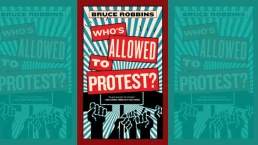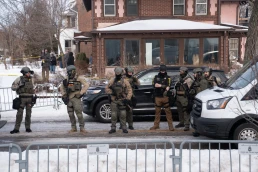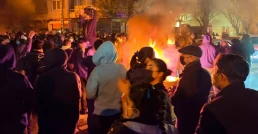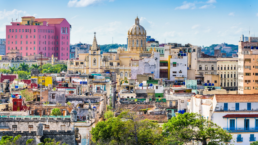President Trump’s decision to roll back our opening with Cuba was disastrous. As he takes office again, he should reconsider.
By Lissa Weinmann, LA Progressive
Ten years ago, the U.S. and Cuba announced the start of normalization between our two countries. Americans and Cubans alike could see a bit of light through a crack in the wall of U.S. restrictions that, for six decades, have blocked normal interaction between close neighbors.
The brief opening was largely ceremonial—President Trump rolled much of it back in his first term. And only Congress can truly end the world’s longest running embargo.
Florida Senator Marco Rubio, President-elect Trump’s pick for Secretary of State, embraces the same old Cold War playbook on the issue: punish Cuba, stoke chaos and civil unrest, and hope the government collapses. As far back as JFK, U.S. officials have been trapped in this irrational family feud that empowers hardliners in both governments while holding citizens here and there hostage to a bureaucratic status quo.
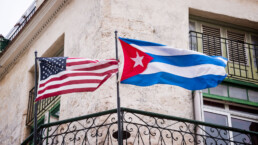
But it doesn’t have to be that way. Two years of limited opening had a positive impact and was supported by a majority of Cuban Americans. Buoyed by Cuban government reforms and cash from families in the U.S., the island’s private sector boomed. Internet access increased and social media exploded with honest voices. American tourists flocked to the country.
Today, after a brief glimmer of hope, Cubans are suffering. Hardliners have stopped the economic reform process. Confusion plagues new leaders transitioning from the Castros’ dominance. The pandemic gutted tourism, while storms and flooding ravaged crops.
Recent Posts
Everyone Is Allowed To Protest
February 13, 2026
Take Action Now Tied up with the apparently very longstanding tradition of claiming that all opponents of atrocities are purely engaged in what has…
Abolition Is Still The Only Way Out Of This
February 13, 2026
Take Action Now Forget the useless so-called “reforms” to ICE and policing currently on offer. We need much more fundamental change.By Andrea J.…
Leading Papers Call For Destroying Iran To Save It
February 11, 2026
Take Action Now The opinion pages of the New York Times and Washington Post are offering facile humanitarian arguments for the US to escalate its…
Despite Marco Rubio’s Warnings, This is the Time to Go to Cuba in Solidarity Against the Latest U.S. Aggressions
February 10, 2026
Take Action Now When visiting Cuba, one can see quickly the terrible effects of the almost seven decades of the U.S. economic blockade of Cuba.By…

